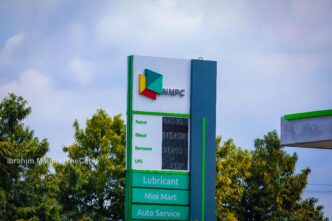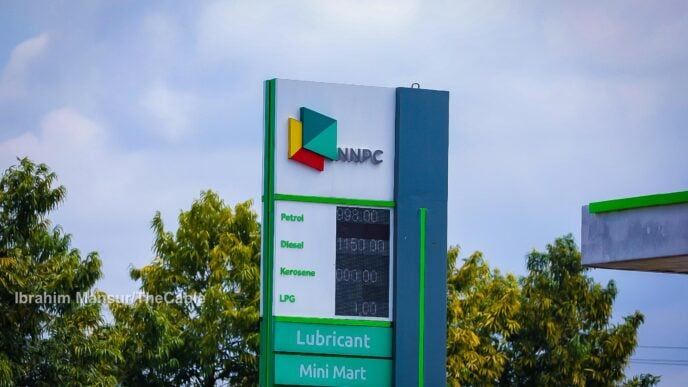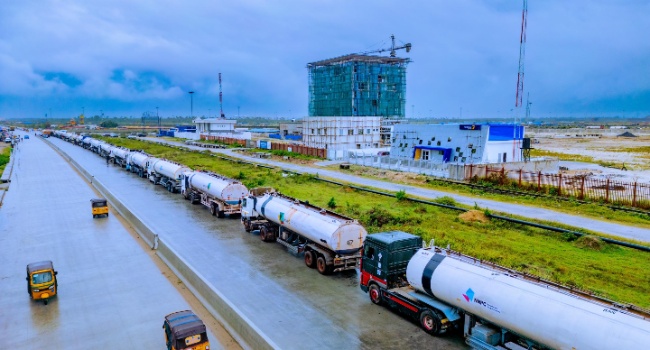The Independent Petroleum Producers Group (IPPG) says Nigeria should not be importing crude oil to meet domestic refineries’ feedstock needs.
Abdulrazaq Isa, chairman of the group, spoke at the 2024 Crude Oil Refinery-owners Association of Nigeria (CORAN) Summit in Lagos.
In order to ensure Nigeria’s energy future, Isa stressed the significance of resolving underinvestment and unlocking additional gas and crude oil production.
He, therefore, urged the government to expedite all pending divestment transactions involving international oil companies (IOCs) to maximise national benefits.
Advertisement
Isa, who is also the chief executive officer (CEO) of Waltersmith Petroman Oil Ltd, called for enhanced security across the Niger Delta to promote a stable working environment, lower asset vandalism, and quell unrest.
He highlighted the need to upgrade and expand the industry’s infrastructure to increase productivity and guarantee a steady supply of products to both domestic and export markets.
“Addressing these issues could unlock an incremental production of 500,000 barrels of oil per day and 1.5 MMscf of gas daily in the short to medium term,” he said.
Advertisement
Isa also said the country’s domestic crude oil refining and petrochemical capacity must be maintained through local production.
He said it would promote industrialisation and increase foreign exchange profits by making the nation a net exporter of refined products.
The IPPG chairman said Nigeria’s emergence as a net exporter would require collaboration among industry stakeholders, including policymakers, regulators. and refinery operators.
Isa added that the rapidly evolving global energy landscape means that Nigeria can position itself to take advantage of new opportunities.
Advertisement
“Today’s summit is a pivotal step towards developing strategies that ensure our refining sector is competitive and resilient,” he added.
Also, Isa underscored the significance of implementing the domestic crude oil supply obligation (DCSO) to guarantee stable feedstock availability for domestic refineries on a willing seller, willing buyer basis, in compliance with the Petroleum Industry Act (PIA).
‘COLLABORATION VITAL TO SUSTAINABLE FUTURE’
In his remarks, Farouk Ahmed, chief executive officer (CEO) of the Nigerian Midstream and Downstream Petroleum Regulatory Authority (NMDPRA), urged the association to collaborate with the government for a sustainable future.
Advertisement
Ahmed said Nigeria would be better positioned to lead the world energy market as a result of the partnership.
Represented by Francis Ogaree, executive director of hydrocarbon processing plants, installations, transportation and infrastructure, NMDPRA, Ahmed acknowledged the importance of private sector investment in developing the industry.
Advertisement
He stressed that NMDPRA favours a cooperative approach over punitive enforcement regarding the PIA.
“NMDPRA envisions a transparent, competitive downstream market that attracts investment, as outlined in Section 32 of the PIA,” Ahmed said.
Advertisement
He highlighted efforts to reduce fees for licenses and permits to promote an environment that is more welcoming to investors.
Ahmed said the authority would continue to encourage public-private partnerships (PPP) to increase refining capacity and de-risk projects while ensuring compliance with operational and environmental standards.
Advertisement
“Streamlining licensing and approvals will reduce bureaucratic delays and provide a conducive legal framework for private investment,” he added.
Ahmed also said NMDPRA had taken major strides to simplify regulatory processes and engage with stakeholders to maintain an attractive downstream market.
“By fostering collaboration, NMDPRA aims to address investor concerns and create a favorable investment climate,” Ahmed said.
He said market liberalisation, including the removal of subsidies and price controls, can create a competitive pricing environment where private operators can thrive.
Also, Ahmed underlined the necessity for private refiners to participate in corporate social responsibility (CSR) programmes, especially in the communities where refineries are located, to ensure local benefits like job creation and development.
Add a comment








